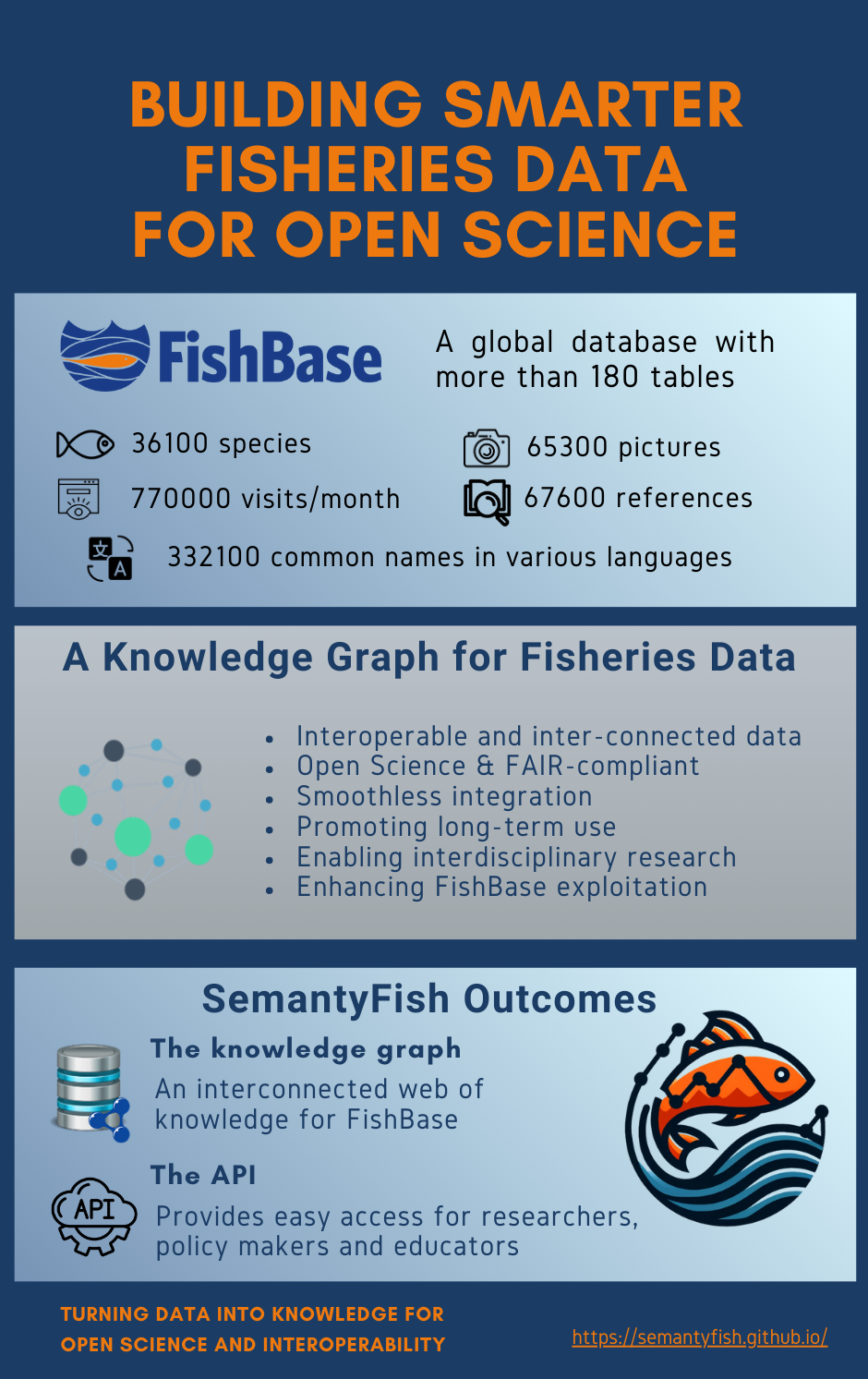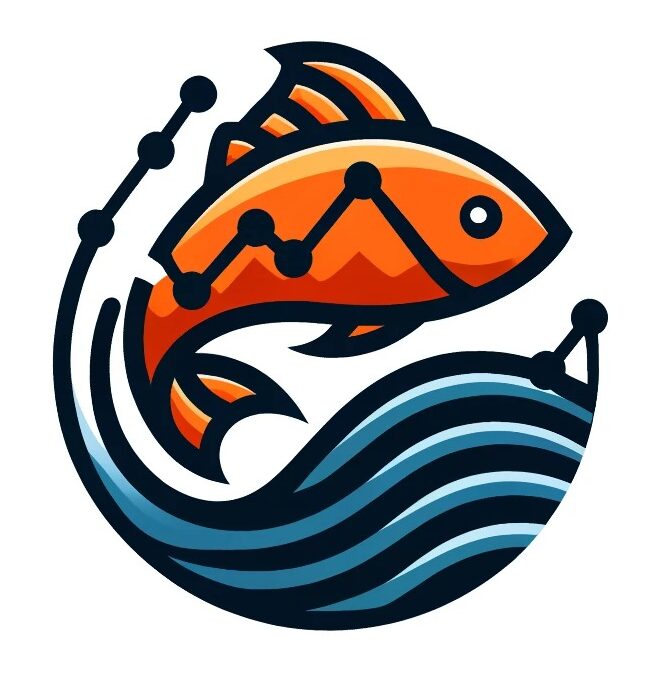Science clusters

Summary
SemantyFish aims to enhance the visibility, interoperability, and exploitability of FishBase by transforming it into a semantic web knowledge base. By leveraging semantic web technologies, the project will enable seamless data exchange, complex queries, and integration with global research infrastructures, advancing its role in open science and interdisciplinary research.

Challenge
Open Science project, Open Science Service, Main RI concerned, Cross-domain/Cross-RI
FishBase, the world’s most accessed database on marine and freshwater fishes, provides comprehensive data on fish biology, such as life cycle, history, population dynamics, taxonomy, and more. It is continuously updated with new information contributed by experts in the field, making it an invaluable resource for the fisheries domain. Its resources are accessible through replicating websites allowing users to search and find the desired resources, using various search forms. However, despite FishBase being accessed over 23,000 times daily, its interoperability and integration across different systems and domains can be enhanced to exploit its full potential for fisheries management, aquatic biodiversity, and interdisciplinary research.
Solution
SemantyFish aims to transform FishBase into a semantic web knowledge base using cutting-edge semantic web technologies. By structuring data with standard vocabularies and ontologies, the project will enhance data interoperability, making FishBase more discoverable and accessible for both humans and machines. This shift will allow seamless data exchange across domains and enable more complex and meaningful data queries. In addition, it will enable richer, more meaningful and complex data queries and analysis by relying on semantic relationships between entities.
As a semantic web knowledge base, its contents can be queried using SPARQL. Furthermore, a dedicated API will be implemented as a versatile gateway for accessing the wealth of resources of the knowledge base in different formats and standards. Designed with REST principles, it will offer simplicity, scalability and interoperability, making it the ideal interface for developers, scientists and researchers.
Scientific Impact
SemantyFish will significantly enhance FishBase’s visibility, interoperability, and integration with other RIs, such as the Global Record of Stocks and Fisheries (GRSF), the World Register of Marine Species (WoRMS), and the EOSC, also linking FishBase to broader domains, such as climate change, food security, and pollution research.
The richness of FishBase contents, combined with the advanced expressivity offered by semantic web technologies, will allow for richer and more precise representation of concepts and their relationships. Through the provision of both generic and fine-grained APIs, the research community and the wider public will have access to this wealth of information. This will reinforce the placement of FishBase as a credible source of fish-related information.
Results
- Official alpha version of SemantyFish API released: The alpha version of the SemantyFish API, providing access to the wealth of information of the SemantyFish Knowledge Base, is available at https://demos.isl.ics.forth.gr/semantyfish-api/
Publications
Article about SemantyFish at EuroFish Magazine (Issue 6 2025, November-December). Pages 48-49 | LINK
Mitkousis, E. and Tzitzikas, Y., 2025, September. Interactive Association Map Creation from Documents Using Association Rule Mining. In International Conference on Theory and Practice of Digital Libraries (pp. 238-247). Cham: Springer Nature Switzerland.
Marketakis, Y., Tzitzikas, Y., Petrocelli, A., Pittonet Gaiarin, S., Astley, S., Absil, C., Boonstra, M., Huntington, T., Murai, T., and Baily, N., 2025. Construction, Access and Application of a Knowledge Base for Sustainable Aquafood Communication, 14th International Joint Conference on Knowledge Graphs. Heraklion, Greece.
Events
- 29-30 January, 2025 | Philippines - APBON Workshop 2025
- February 2025 - Short presentation of SemantyFish to people participating in MAREGRAPH
Promotional material
Principal investigator

Yannis Tzitzikas is Professor of Information Systems in the Computer Science Department at University of Crete and Affiliated Researcher of the Information Systems Laboratory at FORTH-ICS. His expertise lies in Information Systems, specifically in Knowledge Management and Information Retrieval. His research focuses on semantic data integration, exploratory search, and digital preservation. He has co-authored 3 books and more than 180 papers in refereed journals. He actively participates in EU projects and the scientific committees of several international conferences and journals.


